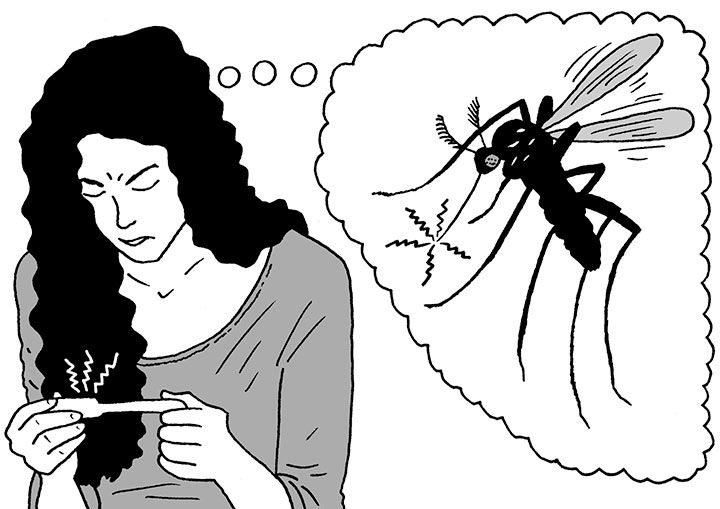In Short
Households in the Beijing area use about 18 percent of the region’s energy but produce 50 percent of its BLACK CARBON EMISSIONS, and more small-soot particles than the local transportation and power plants combined, according to a paper published online in June in The Proceedings of the National Academy of Sciences by environmental engineering professor Denise Mauzerall, Woodrow Wilson School doctoral student Wei Peng, and other researchers. Residential cooking and heating, which still rely on dirty fuels like coal, have contributed to air pollution, becoming a leading cause of premature death in China. Eliminating household emissions in Beijing and its environs could cut small-soot particles by almost 40 percent, according to the paper.
Requests by pregnant women for abortion pills in seven countries in Latin America increased after health officials in those countries warned that the ZIKA VIRUS could cause severe birth defects, according to professor emeritus James Trussell *75 and postdoctoral researcher Abigail Aiken, both of the Woodrow Wilson School.
Along with other researchers, Trussell and Aiken used data from Women on Web — a website that provides access to abortion pills through telemedicine in countries where access to abortion is restricted — to compare the number of women who wanted abortions before and after the alerts. The study was published in the New England Journal of Medicine in June.
Women, Hispanics, African Americans, and Native Americans are UNDERREPRESENTED IN ECONOMICS at the undergraduate and graduate levels, and diversity is increasing very slowly, according to research by economists Cecilia Elena Rouse, dean of the Woodrow Wilson School, and Swarthmore’s Amanda Bayer. They argue that increased diversity will improve productivity and creativity and bring new perspectives to the field. They suggest several strategies to improve diversity: shifting away from lectures and toward discussions, increasing active learning; emphasizing diversity in hiring and graduate-school admissions; and creating early-career mentoring programs. The study was published as a working paper by the University’s Industrial Relations section in July.












No responses yet